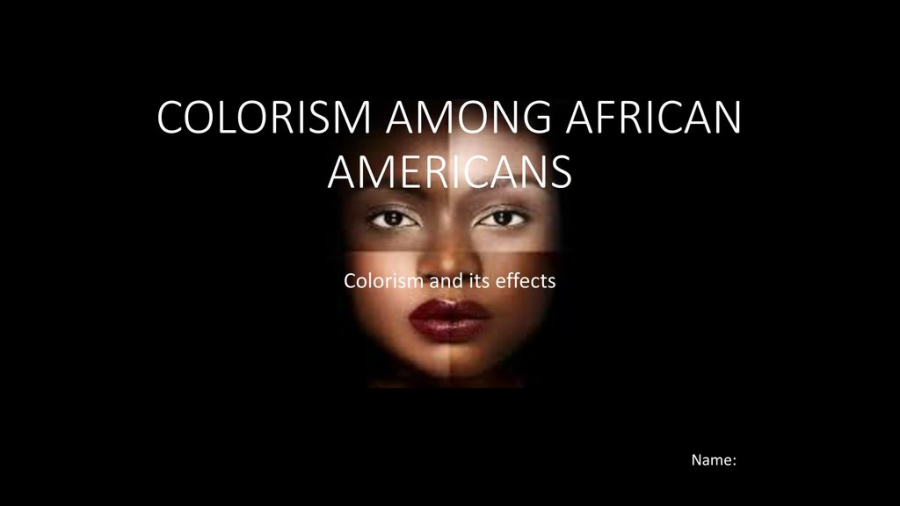Colorism: 50 shades of discrimination
You’ve heard of racism, but what about colorism?
Colorism is discrimination against people with darker skin tones. This can even occur among individuals of the same race. In short, it is being judged by how light or dark one’s skin tone is.
African-Americans are mostly affected by this due to them having a wide variety of different shades of skin, but those of Latino or Indian or Middle-Eastern decent can also be impacted.
Females are affected more by colorism than boys because they believe that having a lighter skin tone is more beautiful than a darker one. Media images have often featured African American models with lighter skin, and lighter-skinned African American actresses have, according to some, gained greater popularity and been cast more easily in roles.
Although colorism affects females more in terms of standards of beauty, researchers found that even within the same race, males with a darker skin tone are more likely to get in trouble than males with a lighter skin tones.
This idea of honoring lighter skin over darker all started with slavery. During this time, slave owners would often let the slaves with lighter skin tones have more privileges. For example, those with darker skin were often used for harsher, outdoor labor, while those with lighter skin might serve within the house. Some lighter-skinned slaves were even afforded education. They were treated differently in some cases because the owners believed that the lighter people might have European ancestry and were therefore superior.
 The Brown Paper Bag Test was said to be used to determine certain privileges for African-Americans. This test was often used as criteria for being able to enter a business, theater, or school. If someone’s skin tone matched or was lighter than the bag, they were allowed to enter; if it was darker, they could not.
The Brown Paper Bag Test was said to be used to determine certain privileges for African-Americans. This test was often used as criteria for being able to enter a business, theater, or school. If someone’s skin tone matched or was lighter than the bag, they were allowed to enter; if it was darker, they could not.
Feelings of insecurity about one’s skin color have resulted in the use different creams, masks, or even surgeries to make the skin lighter.
People should start accepting their skin tones instead of believing that lighter is better. This generation should learn to be conscious of colorism, withhold judgment based on skin tone, appreciate their skin, and just be themselves.








